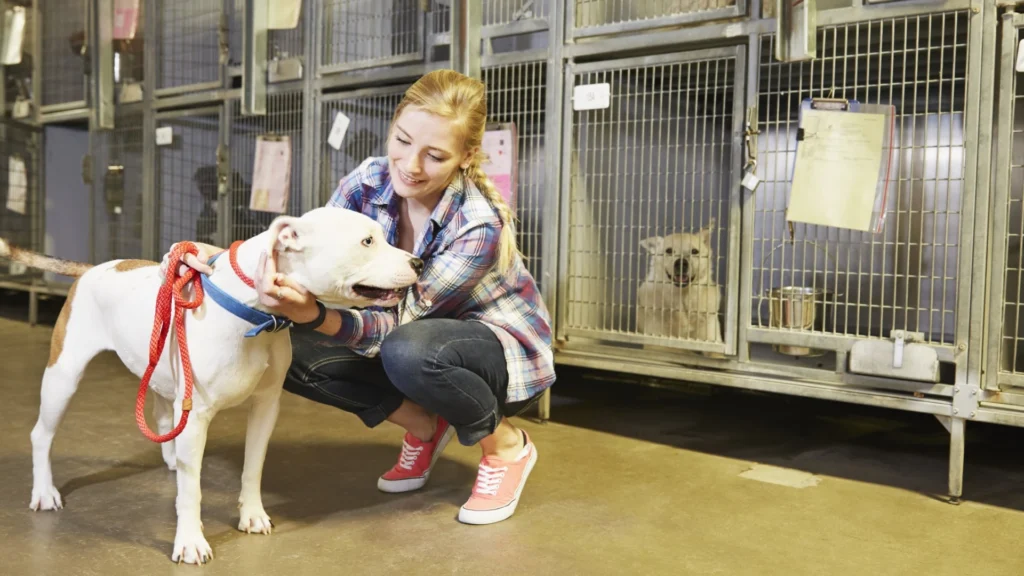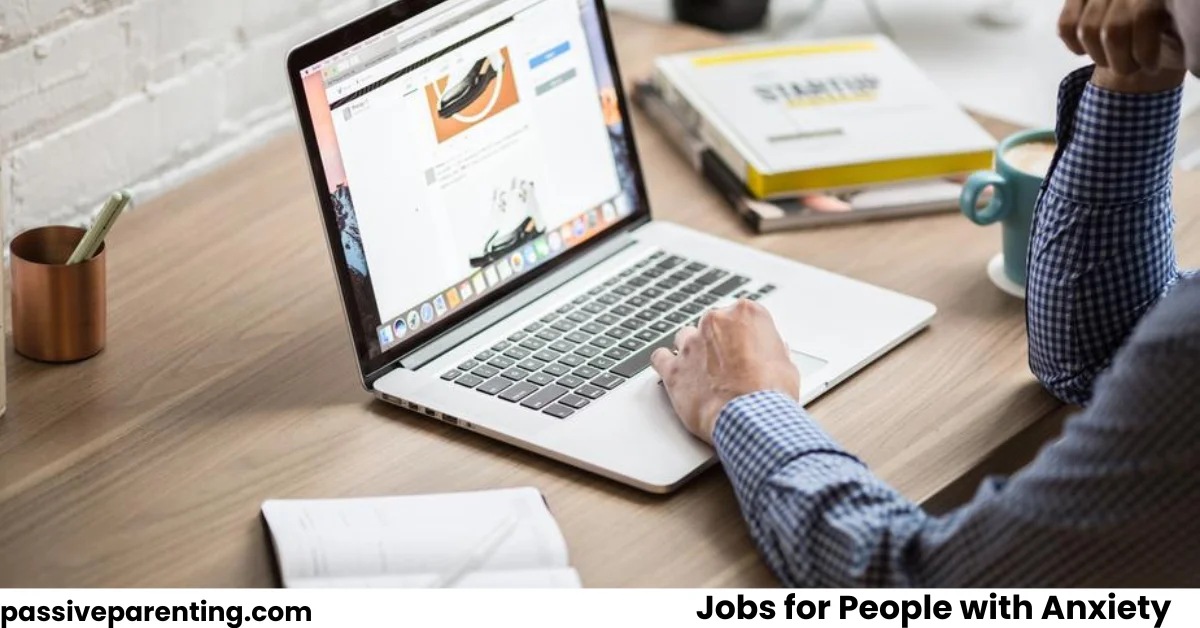Finding a fulfilling job can be challenging for anyone, but for individuals managing anxiety, the workplace can sometimes feel overwhelming. The fast pace, constant interactions, and pressure to perform can heighten stress levels. However, there are plenty of jobs for people with anxiety that provide comfort, stability, and satisfaction without compromising mental health.
Anxiety doesn’t mean you can’t succeed professionally, it simply means you may need an environment that supports calmness, routine, and predictability. Whether you prefer remote work, creative tasks, or jobs with limited social interaction, there are many fulfilling paths available.
This guide explores how to identify jobs suited to your needs, why certain careers help ease anxiety, and how to build a healthy work-life balance that allows you to thrive.
Understanding Anxiety in the Workplace
Anxiety can manifest in different ways for different people. For some, it might mean feeling nervous before presentations or struggling with social interactions. For others, it may appear as overthinking, difficulty concentrating, or a constant fear of making mistakes.
Work environments that are unpredictable, high-pressure, or socially intense can often trigger anxiety. Conversely, jobs that provide structure, autonomy, and peace can help individuals feel more in control and less anxious.
The key is not to avoid work altogether but to find jobs for people with anxiety that align with personal comfort levels and allow for emotional stability.
Qualities of Anxiety-Friendly Jobs
Before diving into specific careers, it’s important to understand what makes a job suitable for people managing anxiety. The right work environment can significantly reduce daily stress and improve overall well-being.
Here are some characteristics that often define anxiety-friendly careers:
- Predictable routines: Jobs with consistent tasks and schedules reduce uncertainty.
- Low social pressure: Positions that don’t require constant interaction help ease social anxiety.
- Autonomy and flexibility: The ability to work independently and control your pace lowers stress.
- Supportive environments: A healthy company culture promotes understanding and mental health.
- Creative expression: Some people find comfort and peace in creative or hands-on work.
- Remote or hybrid options: Working from home can provide comfort and control over surroundings.
These traits serve as guiding principles when evaluating potential jobs for people with anxiety.
Best Jobs for People with Anxiety
There’s no one-size-fits-all career for people with anxiety, but several professions are known for offering calm, structured, and flexible environments. Here are some of the most suitable options, each with its unique benefits.
1. Writer or Editor

Writing allows freedom, focus, and creativity, perfect for individuals who thrive in quiet spaces. Writers, editors, and content creators often work independently, whether from home or in calm office settings.
Why it works:
- Flexible hours and environment.
- Encourages self-expression.
- Minimal social interaction required.
This career supports emotional clarity by transforming thoughts and ideas into written form, making it one of the top jobs for people with anxiety who prefer independence.
2. Graphic Designer

Graphic design combines creativity with structure. Designers typically work on projects with clear objectives and deadlines, allowing focus without overwhelming social expectations.
Why it works:
- Calm, task-oriented work.
- Ability to work remotely or freelance.
- Visual rather than verbal communication.
The combination of creative focus and autonomy makes this a great option for those managing anxiety.
3. Data Entry Specialist

Data entry is a straightforward job with clear instructions and repetitive tasks. It’s ideal for people who prefer predictability and consistency in their day-to-day work.
Why it works:
- Routine-based and low pressure.
- Minimal need for collaboration or communication.
- Offers remote and part-time flexibility.
This simplicity and order can be grounding for those seeking low-stress employment.
4. Librarian or Archivist

Libraries and archives provide peaceful environments that encourage concentration and organization. Interactions are typically calm, structured, and respectful.
Why it works:
- Quiet workspace with minimal distractions.
- Encourages focus and attention to detail.
- Low social demand with occasional assistance roles.
This makes it one of the most anxiety-friendly professional settings available.
5. Animal Caretaker

Working with animals can be incredibly therapeutic. Whether as a pet groomer, shelter worker, or trainer, these roles promote emotional well-being through companionship and routine.
Why it works:
- Calming nature of animals.
- Physical activity supports mental health.
- Meaningful, emotionally rewarding work.
Such roles allow individuals to find purpose and tranquility while making a positive impact.
6. Gardener or Landscaper

Nature has a proven ability to ease anxiety. Gardening, landscaping, or groundskeeping offers solitude, routine, and the satisfaction of visible progress.
Why it works:
- Outdoor settings reduce stress hormones.
- Hands-on work promotes mindfulness.
- Independence and creativity in planning.
This profession is perfect for those seeking peaceful, nature-oriented jobs for people with anxiety.
7. Accountant or Bookkeeper

Numbers offer predictability and order. Accountants and bookkeepers handle structured data and work within clear guidelines, which can be comforting for anxious minds.
Why it works:
- Logical, repetitive work patterns.
- Independent task management.
- Limited unpredictable changes.
For those who enjoy analysis and precision, this can be a rewarding and stable career.
8. Medical Transcriptionist

Medical transcription involves converting doctors’ voice recordings into written reports. It requires focus, accuracy, and minimal interaction.
Why it works:
- Quiet, home-based setting.
- Concentration-focused tasks.
- Predictable routines.
This job combines stability and independence while contributing meaningfully to healthcare.
9. Virtual Assistant

Virtual assistants perform administrative tasks for businesses remotely, such as managing emails, scheduling, and organizing documents.
Why it works:
- Work-from-home flexibility.
- Structured tasks with low social stress.
- Skill-building potential for long-term growth.
This role offers a balance of independence and support without high interpersonal pressure.
10. Craftsperson or Artisan

Creating handmade items pottery, jewelry, candles, or artwork can be deeply grounding. These careers combine focus with creative satisfaction.
Why it works:
- Encourages mindfulness through hands-on activity.
- Flexible, self-directed work.
- Emotionally fulfilling through creative expression.
It’s one of the best jobs for people with anxiety who find peace in artistic work.
If you’re exploring more career paths that reduce stress while offering financial stability, you might also be interested in Low-Stress Jobs That Pay Well Without a Degree. It provides a detailed list of rewarding jobs that don’t require formal education but still offer comfortable work environments and strong earning potential.
Remote and Flexible Jobs for People with Anxiety
Remote work is one of the best developments for anxiety-friendly employment. Working from home eliminates many stressors, commutes, crowded offices, and unpredictable social settings.
Examples include:
- Freelance writer
- Virtual assistant
- Social media manager
- Translator
- Web developer
The benefits go beyond convenience. Remote roles allow individuals to customize their workspace, take breaks when needed, and maintain a calm routine, all of which support mental well-being.
Jobs That May Be Challenging for Anxiety
While anxiety affects everyone differently, certain environments can be more difficult to manage.
Jobs that involve constant social interaction, unpredictability, or high emotional stakes may increase stress levels. These include:
- High-pressure sales roles
- Emergency response jobs
- Hospitality or food service
- Public speaking-based positions
This doesn’t mean these jobs are impossible. Many people with anxiety succeed in them through therapy, support, and self-regulation. The goal is to identify what personally triggers stress and choose accordingly.
How to Choose the Right Job for Your Anxiety Type
Different types of anxiety call for different job environments.
- Social Anxiety: Focus on roles with minimal interaction or remote work options.
- Generalized Anxiety: Choose stable, predictable jobs with steady routines.
- Panic Disorder: Look for flexible or part-time positions that allow rest when needed.
Ask yourself:
- What makes me feel calm at work?
- Do I prefer structure or creativity?
- How much interaction feels manageable?
Knowing your comfort zones makes it easier to find jobs for people with anxiety that align with your emotional needs.
Coping Strategies for Working with Anxiety
Even in the right job, managing anxiety requires continuous self-care. These simple techniques can help maintain emotional balance at work:
- Practice mindfulness: Take brief breaks to breathe and reset.
- Stay organized: Structure tasks to prevent overwhelm.
- Set boundaries: Know when to say no to protect your mental energy.
- Build a support system: Find trusted coworkers or friends to talk to.
- Seek therapy if needed: Professional support can help manage triggers effectively.
By developing healthy habits, you can excel in your chosen career while keeping anxiety in check.
How Employers Can Support Workers with Anxiety
A healthy workplace culture benefits everyone, not just those with anxiety. Employers can make a big difference through empathy and flexibility.
Supportive measures may include:
- Flexible scheduling options.
- Mental health awareness programs.
- Private workspaces or remote arrangements.
- Regular feedback delivered calmly and constructively.
When companies prioritize well-being, employees feel valued and perform at their best.
When to Seek Professional Help
If anxiety significantly affects your ability to work or function daily, it may be time to seek professional guidance. A therapist can help you develop coping tools, identify triggers, and rebuild confidence.
Professional help doesn’t mean you’re weak, it’s an act of strength. With support, it’s entirely possible to manage anxiety while pursuing a fulfilling career.
Conclusion
Finding the right career is deeply personal, and for those living with anxiety, it’s about balance, self-awareness, and compassion. There are many jobs for people with anxiety that provide peace, purpose, and stability. Whether it’s writing, designing, gardening, or working remotely, the right role can transform how you experience work and life.
Remember, anxiety doesn’t define your abilities, it simply guides you toward environments where you can thrive. When you align your career with your mental well-being, you don’t just find a job; you find peace in your profession.




